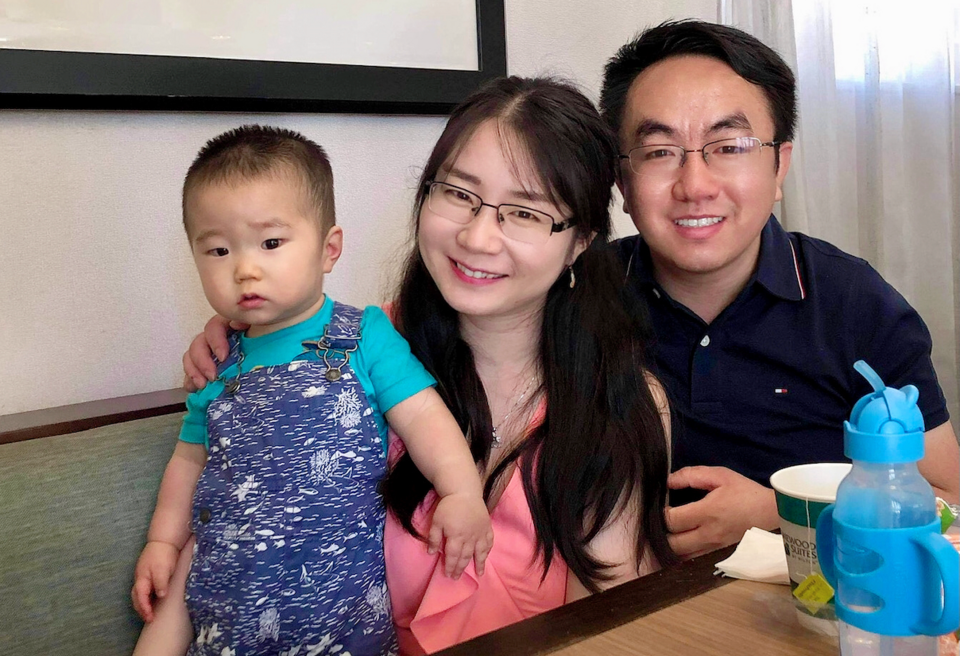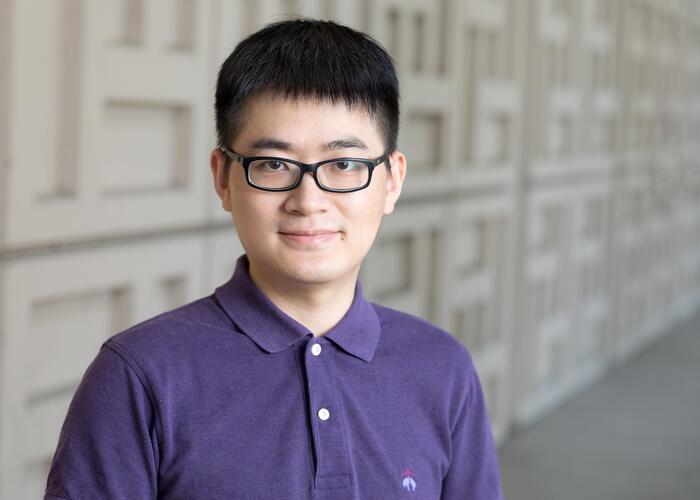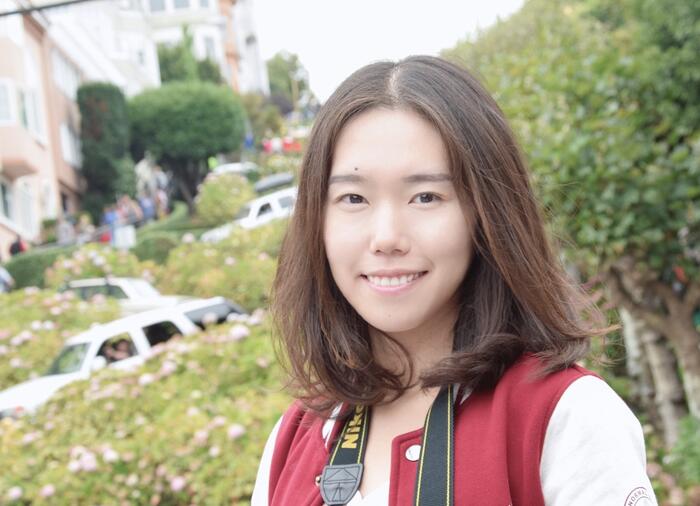Meet SCCEI's Postdoctoral Scholars
Meet SCCEI's Postdoctoral Scholars
SCCEI welcomed six postdoctoral scholars to the team this year. We spoke with each of them to learn more about them and their research interests.
We welcomed six new postdoctoral scholars to the SCCEI team hailing from top universities around the world. Aligned with our mission to bring together scholars dedicated to conducting empirical, multidisciplinary research, each of our postdoctoral scholars is focused on distinct research projects ranging from early childhood development to the environment and sustainability.
We spoke with each postdoc to get to know them better and learn what research project they are most excited to work on during their time with SCCEI.


Fun Facts: While I was in undergrad you could often find me playing rugby in the Belgian national league. I even joined the Chengdu Pandas Rugby Club for a year while studying at the Southwestern University of Finance and Economics in Chengdu, China. Now I have retired my cleats and am an aspiring NFL super-fan. I still need to learn the rules but it does look fun!
My Journey to SCCEI: My path to SCCEI really started during my third Master’s degree back in 2015. I applied to work with one of SCCEI’s (which was actually REAP back then) research collaborators who was working on an empirical project focused on left behind children in China. Our project used REAP’s data and I clearly remember looking through the data and thinking, “oh my god, this type of research exists? That’s so exciting! That is what I want to work on.” After I completed my masters, I went on to get my PhD all while continuing to collaborate with REAP on a number of studies. After a long long-distance relationship, I finally had the opportunity to come to Stanford in person and join the team as a postdoctoral scholar!
My Current Research Obsession: I am currently working on a fascinating project that I like to call, “Big Data on Little People.” We have this really big data set that includes a lot of detailed information on how children develop, but the existing measurement tools aren't very efficient. So we want to work backwards and use the data to explore patterns of child development and to design a simpler measure of child development that we can potentially use on a larger scale in China.


Fun Facts: I have a 19-month old son, so most of my free time is spent playing with him and enjoying family time, but back home in China, before kids, you could often find me playing ping pong. I was on a ping pong team in undergrad and I played nearly 2 hours every day. If anyone is looking for a partner here at Stanford, let me know!
My Journey to SCCEI: Nearly a decade ago I joined one of REAP’s field surveys in rural China and helped interview rural villagers. You see, I grew up in rural China thinking my family was poor, but participating in this survey made me realize that there were families living in China who were even more worse off than I was. That shocked me, but it also inspired me to want to learn more so I could help improve the quality of lives for all households living in rural China. REAP, now SCCEI, does just that. Our mission is to help people, we look for more efficient, evidence-based solutions to break the cycle of poverty widespread across rural China. After that first field study with REAP, I continued working alongside them and their collaborators in China and ended up coming to Stanford in 2015 during my PhD degree as a visiting student researcher. Now, having completed my PhD, I’m thrilled to be back with SCCEI on campus working as a postdoctoral scholar.
Current Research Obsession: I am passionate about my research on improving the quality of health care in rural China. We came into this project knowing that the quality of care was really bad, but we didn’t know how bad. Through our various studies we learned that doctors in rural Villagers had a terrible positive diagnosis rate. Over the past several years we’ve tried several methods, like conducting trainings and offering incentives, in hopes of decreasing the rate of misdiagnosis, but nothing has yielded the results we want. So now we’re trying something new. We have developed a telehealth-based intervention that virtually connects rural doctors with tertiary level physicians who will be able to help diagnose cases the rural doctor doesn’t feel confident diagnosing. I’m excited to see how this study turns out, I really think it might work.


Fun Facts: I used to be a guitarist in a school band and we played rock music, but I haven’t picked up a guitar again since coming out to Stanford. Hopefully that can change soon, if anyone is interested in jamming, reach out!
My Journey to SCCEI: Growing up in China I became accustomed to always seeing gray skies on the way to school or coming back home with a black-tipped nose from all the coal being burned in the neighboring factories. It really wasn’t until I volunteered at the Beijing Olympic games that I realized it didn’t have to be this way, and that our actions could greatly affect the environment. After that I began to shift my studies in physics to also include environmental studies and economics. I applied to be a postdoctoral scholar with SCCEI because I love the multidisciplinary approach they take to tackle large problems and I was eager to work with outstanding scholars like Scott Rozelle, Hongbin Li, Larry Goulder, and Gretchen Daily.
My Current Research Obsession: My research focuses on using a multidisciplinary approach to identify the causes and consequences of environmental, developmental, and health issues in China, to find ways to tackle these issues and promote evidence-based policymaking for sustainable development. In future studies, I hope to explore how people respond to policy or information interventions about ambient environment, how they think about environmental risks and benefits, and how it further translates to human capital accumulation.


Fun Facts: Since coming to Stanford I’ve taken up running as a hobby. There's nothing like spending time outdoors under the blue California sky!
My Journey to SCCEI: While completing my PhD program at Tsinghua I learned about some recent studies SCCEI had just begun looking into the mental health and resilience of school children in China. This area of study is something I am very interested in and directly aligns with my own research focus on positive psychology. I did some more research and it turned out that one of my advisors was a former student of Scott Rozelle’s, he was able to connect me with the Center and encouraged me to apply to be a postdoctoral scholar with SCCEI.
My Current Research Obsession: Through the lens of positive psychology, my research focuses on teacher and student mental health – more specifically their level of anxiety and depression – and how to improve their mental health in aims of improving their quality of life. A few years ago, I investigated how one can improve their wellbeing and anxiety, and discovered that in addition to exercise and medication, participating in regular classes that teach the subjects how to be happy and resilient is another effective method to improve well-being. Currently, I’m working on a large project involving over 100 cities in rural and urban China aiming to apply positive psychology to primary education. Over the course of 3 years, I plan to evaluate how the mental health of both students and teachers are impacted by the intervention.


Fun facts: Not so long ago I was really afraid of dogs, but then I married a huge dog lover. After a lot of encouragement and tentative visits with friends’ dogs, my wife and I decided to get our own dog. Needless to say I am no longer afraid of dogs and have miraculously become an extreme dog lover myself – my current Youtube playlists include international cooking videos and dog videos.
My Journey to SCCEI: My story starts almost a decade ago in 2012. I signed up as an enumerator on one of REAP’s studies in rural China. I loved the feeling I got from going to rural areas and interviewing local villagers, and I quickly became fascinated by the research REAP was conducting. These surveys introduced me to the field of development economics and sculpted me into the researcher that I am today. I continued to work alongside REAP throughout my master’s and PhD studies and continued to be amazed by the many amazing and caring people I met along the way. I often remind myself that it’s not only the business you do, but the people you are doing it with. This is an amazing community to work with and that is what really attracted me back as a postdoctoral scholar with SCCEI.
My Current Research Obsession: For the past several years I have been primarily working on early childhood development interventions addressing cognitive delay in rural children and rural parenting practices in China. I really like working in this area because not only do the interventions benefit rural households and the lives of rural children, but it also comes with a very high return to investment, which is the gold standard for all economists, really. My most recent work looks at understanding China’s demographic challenges. The demographic changes in China over the past few decades have been dramatic, and macro-level events like these have large implications on the human capital development of the country. I’m excited to continue down this road working alongside several SCCEI faculty affiliates during my postdoctoral appointment!


Fun Facts: When I am not cooking delicious food with my family, I love spending time outdoors. Nature is like an escape to me, so mostly on weekends, I enjoy hiking, swimming, and playing badminton with my friends. The fresh air and beautiful natural scenery always help me reduce my stress from work and makes me appreciate the value of a clean environment.
My Journey to SCCEI: As a nature-lover, I have always been passionate about investigating the benefits of a clean environment for improving the well-being of people. The Nature Capital Project led by Professor Gretchen Daily provides a great platform to work with scientists across the world to understand the socio-ecological process of sustainable management and explore the opportunities for greener development. I feel honored to join this group and hope to make many contributions to develop nature-based solutions to reduce ecological risk.
My Current Research Obsession: My current research explores opportunities to improve clean energy generation from hydropower under changing climate conditions by preserving forests and indigenous areas upstream of hydropower dams. This work is of global importance as it allows us to study compounded effects of climate and land-use changes on energy systems and to value the role of ecosystems in maximizing hydropower generation. My research aims to highlight sustainable watershed management as a win-win solution for clean energy, conservation, and livelihoods in upstream catchments. During my postdoctoral appointment, I plan to apply my research to the Yangtze River Basin, the largest watershed in China. Results of the research can provide a quantitative base for payments for ecosystem services (PES) programs and encourage private sector investment, such as China Three Gorges Corporation in sustainable watershed management.
